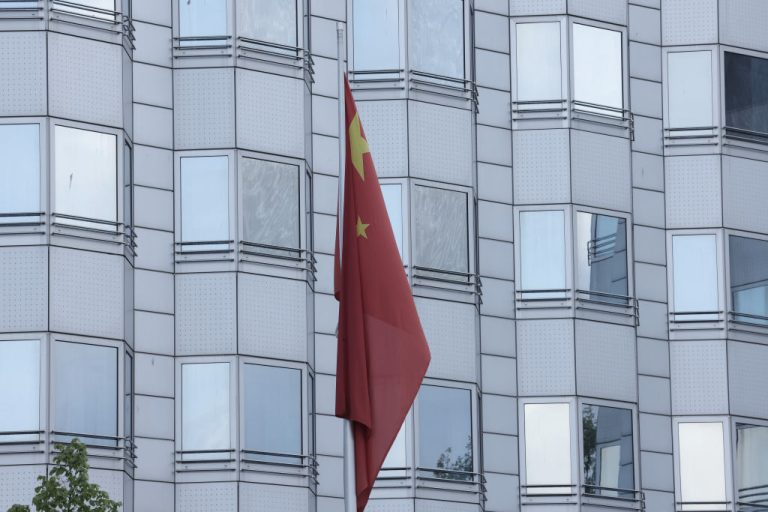In another of several consecutive blows to the Chinese economy under its current government, the Chinese Communist Party, a new batch of data has shown that consumer spending during the June Dragon Boat Festival was lower than it was before the worldwide Coronavirus Disease 2019 (COVID-19) pandemic.
Bloomberg reported the data, which is compiled and released by the government’s Ministry of Culture and Tourism, on June 25, noting that the 37.3 billion yuan ($5.2 billion USD) reportedly spent amounts to less than 95 percent of 2019’s figure.
However, the statistic also claimed that there were 12.8 percent more domestic tourism trips made than in 2019—106 million in total.
The article noted that similar statistics were reported by the Party after the May Labor Day holiday: spending came in at 148 billion yuan, a marginal 0.7 percent higher than 2019 while total number of trips is alleged to have been 274 million, up 19 percent from before the pandemic.
The Communist Party is notorious for data manipulation and fabrication, especially with an officially reported COVID-19 case count and death count that dwarfs that of the United States and a heavily delayed Seventh National Census released in 2021 that showed hallmarks of an attempt to mitigate a severe population decline.
Success
You are now signed up for our newsletter
Success
Check your email to complete sign up
Spending declines are notable in that after President Xi Jinping eliminated the Zero COVID social credit system in November, the Chinese economy was forecasted by western pundits and analysts to manifest something of a renaissance, especially in tourism and manufacturing.
However, the truth of data is often reflected in the prices of commodities and equities.
Copper, one of the world’s most important metals for technology and one which the price of is tightly wed to China’s industry, bounced almost 30 percent between November of 2022 and January from $3.30 to $4.35.
However, the rally was short lived and retreated to a low of $3.54 by May, a pattern that the mainland’s equities market indexes have likewise mirrored.
Bloomberg similarly noted in a second June 25 article that both home sales and June car sales estimates are down compared to years prior.
Although the ruling Communist Party’s central bank, the People’s Bank of China, recently announced a series of stimulus measures, including rate cuts, the equities market hasn’t bought the hype.
The Hang Seng Index bottomed May 31 just above 18,000 points before rallying above 20,100 to start June on the back of promised aid.
But in the time since, the markets have given most of the gains back, closing above 18,800 points during the June 26 trading session.
Lu Ting, chief China economist at Nomura, told clients in an analysis note that the curious increase in travel volume combined with reduced spending is a condition “implying either a weaker intention to spend or less purchasing power,” Bloomberg reported.
“As pent-up demand fades and the risk of an economic double-dip becomes more real in coming months, we expect in-person services consumption growth to weaken further,” Lu added.
Not all of China’s economic news is negative. Communist Party messaging outlet Xinhua claimed in a June 25 wire that the China Film Administration reported the movie industry brought in 909 million yuan ($126 million USD) during the Dragon Boat Festival, with “80.08 percent” of revenue being generated from domestic media.
CNBC also reiterated the problems for the Chinese economy in June 11 reporting on reduced online advertiser spend heading into a “618” event similar to Black Friday.
An agent for a marketing consulting agency in China told the outlet, “We know it takes exactly the same amount of money to bring the customer into your shop today versus 2021, but the customer is going to spend about 30% less in your shop.”
“For 618, generally of course brands will be trying, but compared to before it’s a bit more tired,” she also said.
Despite the comments, data in the article showed that advertising revenue for every platform besides Alibaba and Weibo was up year over year based on March 31 financial reports from the companies.
Pinduoduo and Tencent claimed in financial reports to have roughly 50 and 18 percent more revenue from their online ad spend respectively compared to the previous year.
The article noted that Chinese government data states that urban residents, on average, benefit from more than 12,000 yuan ($1,700 USD~) in disposable income, a figure up almost 4 percent from the prior year.
Yet the increase stands at odds with a reality wherein much of China’s factories were shuttered and people were held under house arrest for months at a time during Zero COVID social credit.







